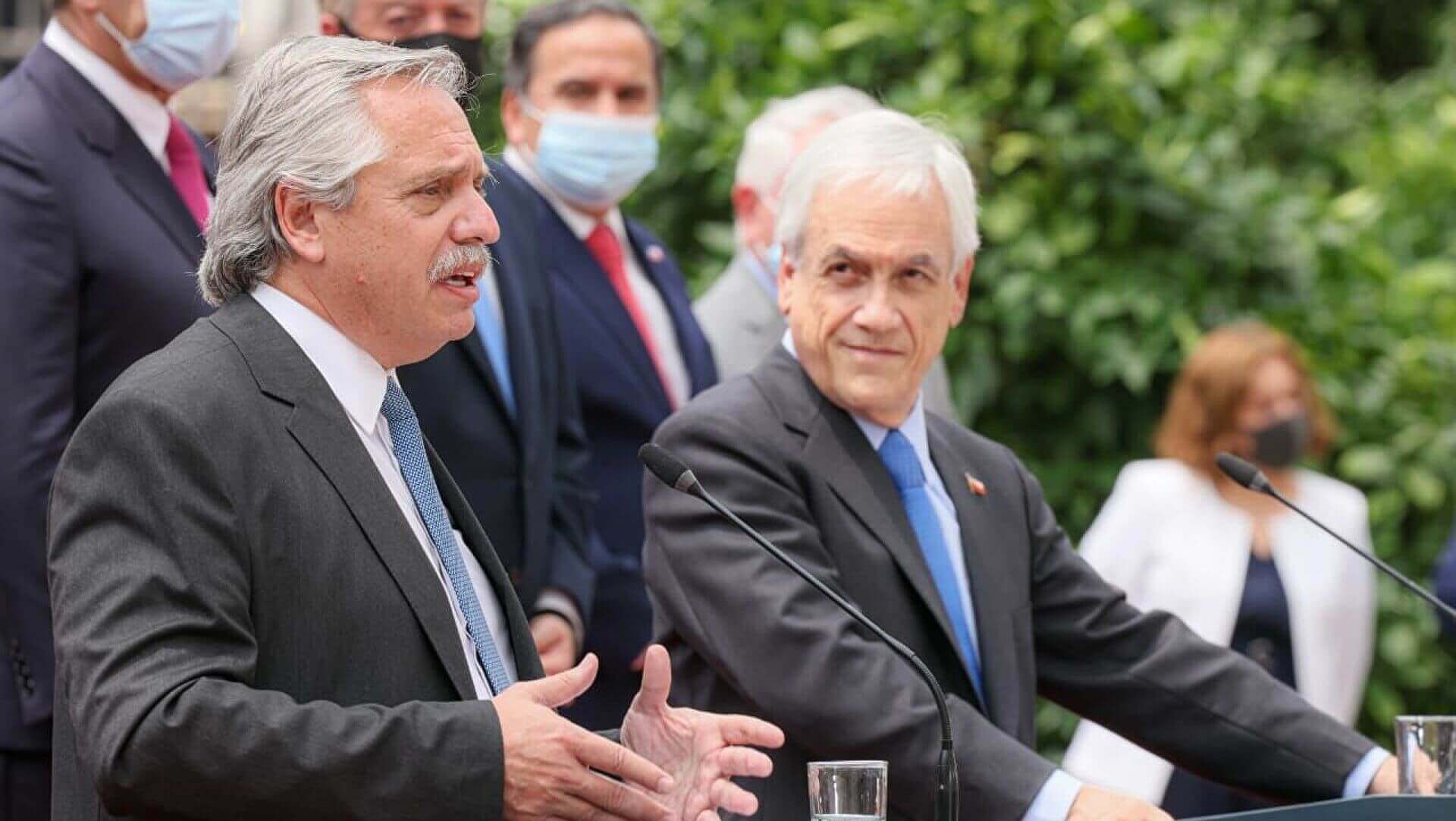Chile and Argentina’s maritime dispute concerning continental shelf limits to the south of Tierra del Fuego is intensifying as both countries approach crucial elections. Argentina is holding midterm parliamentary elections on November 14, and Chile is set to conduct presidential and legislative elections just one week after. Against this backdrop, nationalism is on the rise, with Argentina accusing Chilean President Sebastián Piñera of violating the 1988 and 1999 peace accords.
The current tensions first flared up in early August, when it emerged that Argentine President Alberto Fernández had referred to the Magellan Strait and the Drake Passage as “shared spaces” in a National Defence Policy manual for the armed forces. He said that the area is “jointly explored, studied, and controlled” by both countries, adding that the Magellan Strait and the Drake Passage are “strategic spaces both as natural navigation lanes between the Atlantic and Pacific oceans, and because they are privileged access points to the Antarctic continent.”
To this end, he wrote: “It is of the upmost importance to generate a cooperative proximity with Chile and Bolivia in the defence and exploitation of the lithium deposits in the so-called Lithium Triangle“, add the Argentine defence guidelines.”
Chile reacted strongly to these revelations, with its foreign ministry saying, “The Magellan strait, including its two shores are Chilean sovereign territory in conformity with the 1881 Treaty, which was reiterated in the 1984 Peace and Friendship Treaty.” It further said: “Chile rejects the Argentine National Defense guidelines outlined about an alleged joint control since it has no legal support and is not in accordance with what is established in the applied treaties.”
Piñera has also said that Chile will “continue to exercise” its sovereign rights over the region, which it claims are “acknowledged by the United Nations Convention on the Law of the Sea.” Furthermore, his government said that Chile does not recognise the boundaries of the extended continental shelf claimed by Argentina in 2009 under former President Cristina Fernández de Kirchner.
This strong reaction forced Argentina’s ambassador to Chile, Rafael Bielsa, to apologise to the Chilean foreign ministry, saying it was a “mistake.” Furthermore, Argentine Foreign Affairs Minister Felipe Solá clarified that the guidelines would be “redrafted” and then referred to the region as a “demilitarised zone” with “no joint military or patrolling activities in the area.”
Chile, too, has angered Argentina, however, after it recently updated its Nautical Chapter 8 and claimed ownership of some tiny islands in the Drake Passage to the south of Cape Horn that Argentina claims as its own. It has effectively extended its continental shelf by over 30,000 square kilometres with its latest claim. Chilean President Piñera has further outlined plans to gain official approval of its claims of the continental shelf west of the Antarctic peninsula by the Commission on the Limits of the Continental Shelf of the United Nations.
Argentina has rejected Chile’s decision to update Nautical Chapter 8, saying: “The measure attempted by Chile intends to appropriate a part of the Argentine continental shelf and an extensive area of the seabed and ocean, a maritime space that is part of the Common Heritage of Humanity in accordance with the United Nations Convention on the Law of the Sea.” Foreign Affairs Minister Solá added that Chile’s claims violate the Treaty of Peace and Friendship the two countries signed back in 1984, while a note sent by the Argentine government further asserted that Chile had also contravened the 1982 United Nations Convention on the Law of the Sea.
Last Friday, however, Piñera doubled down and said Chile’s claims are “legitimate” and “in clear conformity with international law.” Likewise, Daniel Filmus, the Argentine Secretary for Antarctica, the Southern Atlantic, and Las Malvinas, said, “Our position is clear. There is nothing to discuss.”
Therefore, although both sides have indicated that they are open to dialogue, it is unclear how they plan to resolve this impasse.
Chile and Argentina’s Maritime Dispute Intensifies as Elections Approach
The current tensions first flared up in early August, when it emerged that Argentine President Alberto Fernández had referred to the Magellan Strait and the Drake Passage as “shared spaces.”
September 8, 2021

IMAGE SOURCE: PRESIDENCY OF ARGENTINAArgentine President Alberto Fernández (L) and Chilean President Sebastián Piñera
